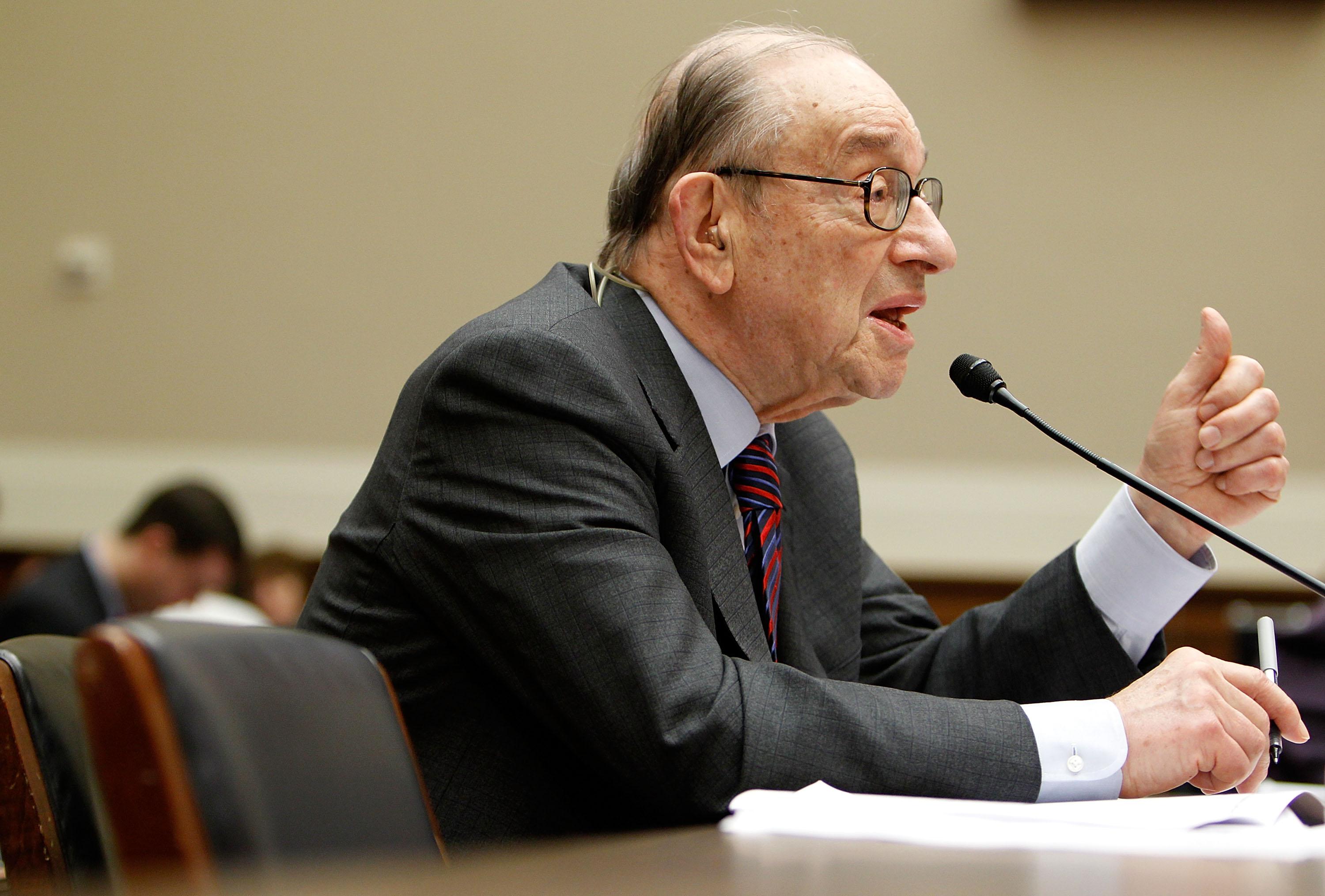I’m a little surprised to find myself saying this, but I think David Dayen’s managed to be too soft on Alan Greenspan in his take on Greenspan’s new book, The Map and the Territory. It’s true that Greenspan’s 2004-vintage pimping for adjustable-rate mortgages was bizarre and shameful, but I actually think we’ve seen plenty of evidence over the past five years that good old-fashioned imprudence and thin regulation can produce endless financial mischief even without unorthodox financial products. It’s on the “thin regulation” front where Greenspan’s new media push is driving me nuts. He’s out essentially preaching the Gospel According to John Cochrane, in which the actually existing Dodd-Frank financial regulation overhaul is a pointless increase in the regulatory burden, and really the entire crisis could and should have been avoided by imposing stiffer capital requirements (i.e., less borrowing) on the financial sector.
This rather conveniently ignores the period in history—a period that began in 1987 and didn’t end until 2006—when Alan Greenspan was the most important bank regulator in America.
Who was letting banks lever up so much? Greenspan! Who was happy to see the growth of a “shadow banking” sector outside the ambit of traditional regulation? Greenspan! It’s as if Richard Nixon wrote a book about how tougher security at the Watergate Hotel could have avoided a lot of problems for America.
It’s all kind of a shame because if you ask me, Greenspan did an excellent job at the core monetary policy role of a central banker, but as his career went on he got more and more involved in misguided bank regulation initiatives and (worse) freelancing on fiscal policy. His latest work is entirely focused on the worst aspects of his record. That’s starting with this shocking hypocrisy on bank capital and continues with his ludicrous musings on Social Security and the national savings rate, which are written as if he wasn’t the primary person arguing in 2001 that we needed large tax cuts in order to avoid the budget deficit becoming too low.
